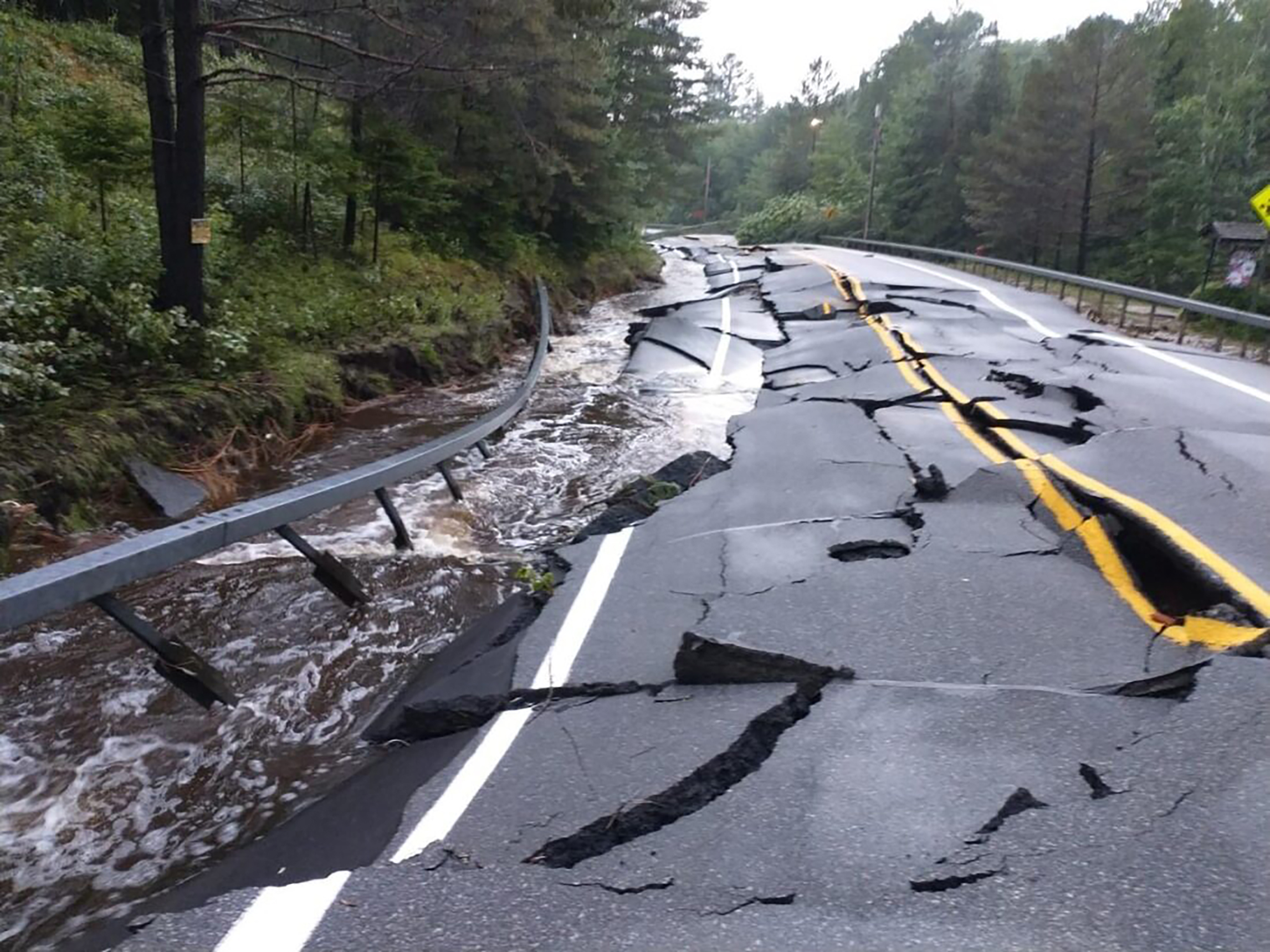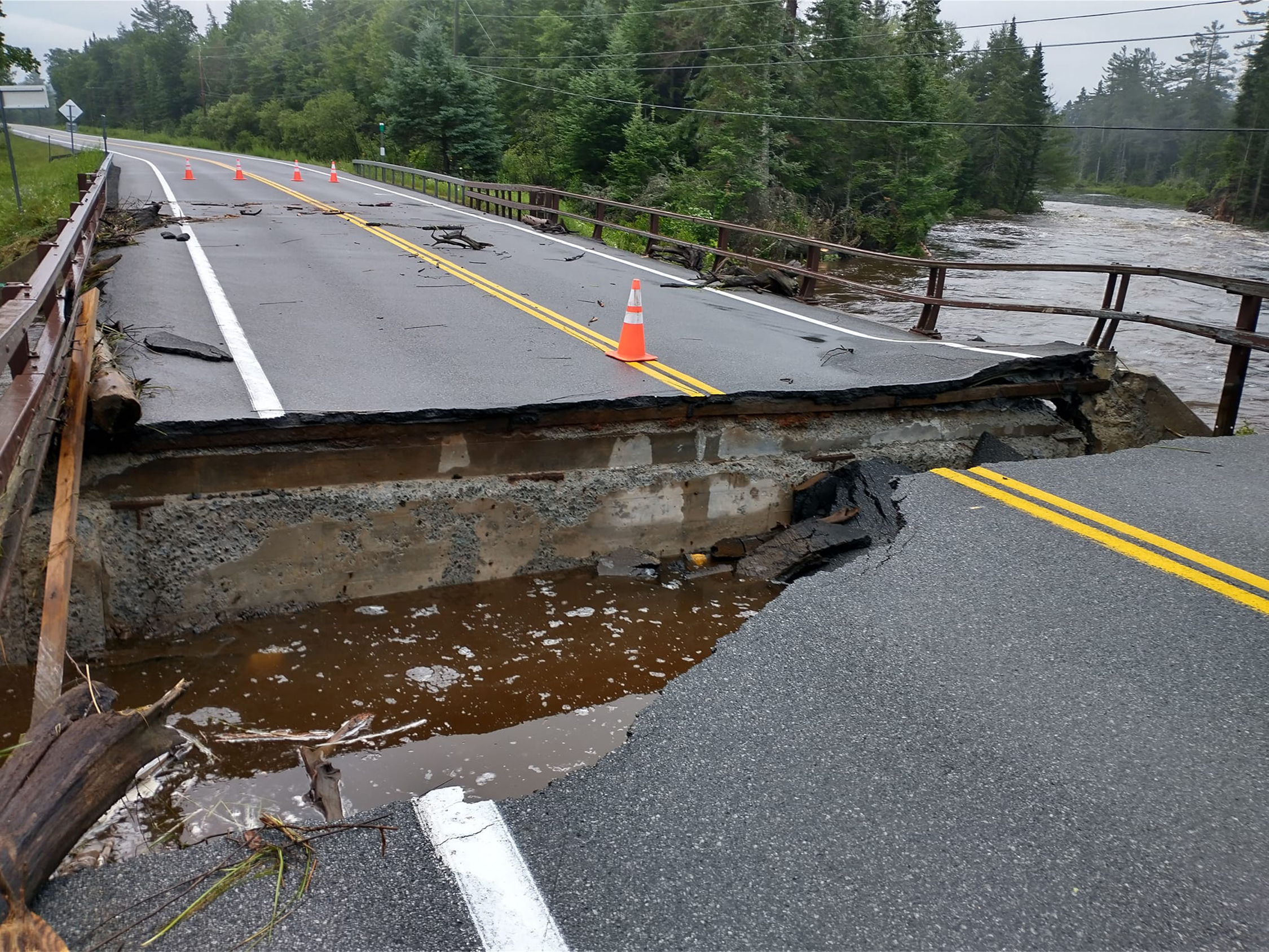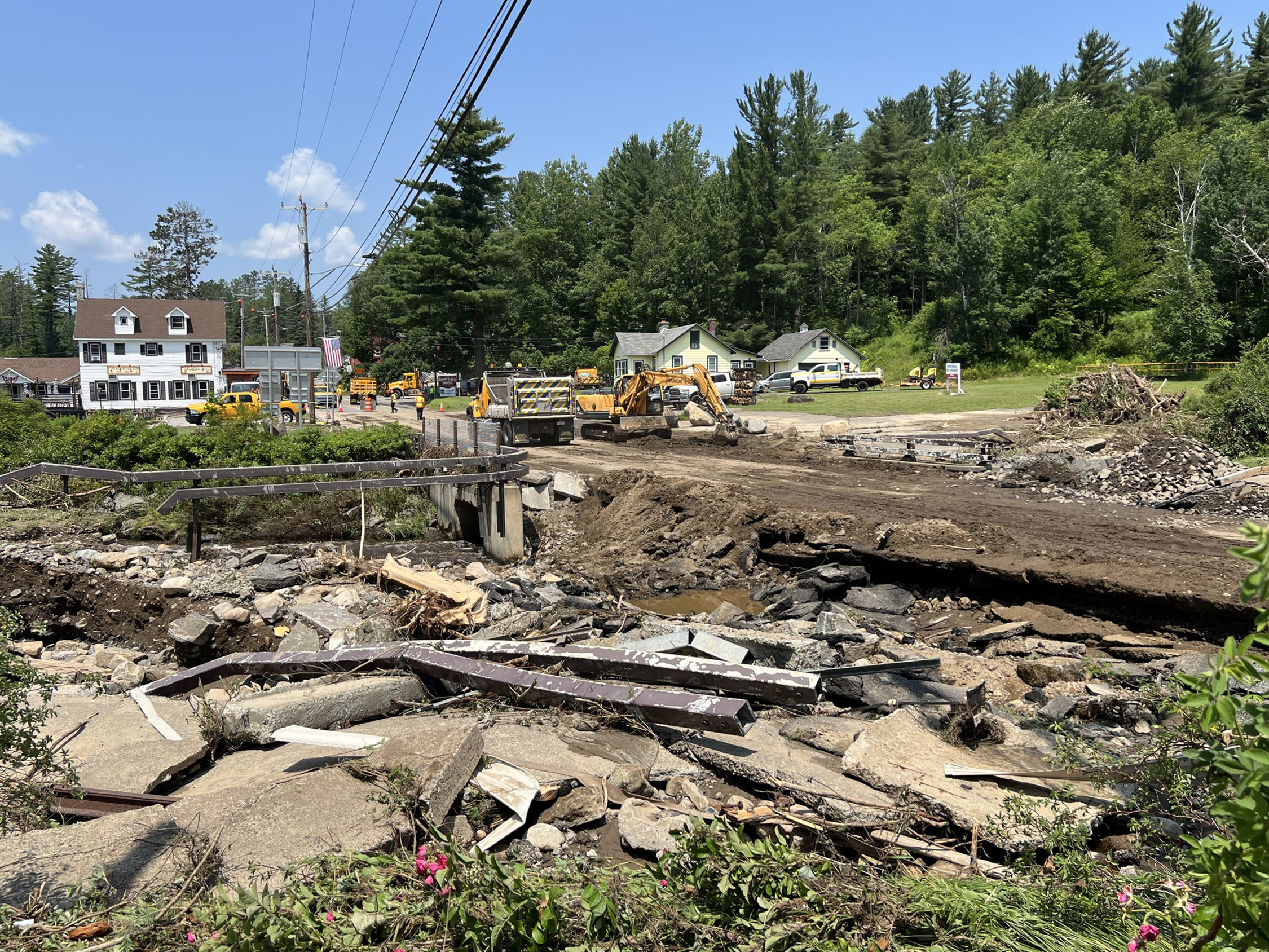
By Patricia A. McGuire
President of Trinity Washington University
On Monday, July 10, 2023, the rain kept coming.
All day, torrents of water pouring down on the lakes and streams and mountains of the central Adirondacks.
I didn’t mind it at all then, cozy in my cabin reading a good book and watching the whitecaps out on Long Lake.
But then the night came, and I woke up numerous times during the night to the sound of even more rain pounding harder on the roof, the trees, the lake outside.
I was just getting up around 6:30 a.m. Tuesday morning, July 11, when I heard a knock on my door — an unusual event up here in upstate New York’s back country.
Opening the door, I saw a young woman dressed in forest ranger green with an emergency radio on her shoulder.
She had devastating news. The roads are all washed out in Long Lake, dams burst, culverts overflowed, small streams became destructive raging waters.
“You’re not going anywhere for a few days,” was her comforting advice to me.
The photo above shows the road I would normally take to get from my cabin into the town of Long Lake (see the Long Lake Facebook page for more photos). So much for going to Stewart’s for morning coffee or afternoon ice cream!
Could I get out in the other direction, heading east to Newcomb and on to the Northway? Well, no. The bridge over a small Hudson River stream known as Fishing Brook had washed out to the east (below). So, here I am, stranded in Shangri-La!

Honestly, I cannot complain. I am privileged to be in a beautiful place. Two terrific friends are in the cabin next door, and there are other folks in compounds all along this road. We’ll be fine. I have confidence in the New York state road crews who already have patched one of the major washouts in town on Rte. 30 and they are working on these problems along Rte. 28N.
As I write, I can look out onto the lake, a view that remains fantastic.
So, what’s to worry?
The worry is clear. Climate change is real, and climate change is having a devastating effect on people, communities, wildlife and the environment all over the planet.
The fierce storms during the second week of July not only disrupted travel up here in the Adirondacks, they also devastated a number of towns in Vermont, including massive flooding in the capital city of Montpelier.
Farther north, in eastern Canada, wildfires have raged for weeks, spewing clouds of smoke and ash into the atmosphere that wound up polluting the air quality as far south as Washington.
In Phoenix, temperatures are poised to exceed 110 degrees for the 13th straight day with no end in sight.
During the first week of July the entire planet set a dubious record for the hottest day ever recorded in human history.
The list of weather-related catastrophes grows longer each day, a result of the larger catastrophe of climate change fueled by human behaviors.
Even with so much clear evidence of the unfolding long-term dangers, too many politicians and policymakers refuse to budge from their backward-facing positions, with some actually denying the obvious science of climate change to those who know it but choose to protect the interests of industries that do not want to incur the expense of environmental sustainability.
Is it possible to slow down, stop or even reverse climate change? We have to believe we can, even if some of the solutions seem small or inconvenient.
Individually, we all can take personal actions such as recycling or being savvy about the climate impact of what we buy and the transportation we use. But individual actions alone are far from enough.
Climate change must be a central concern of all governments, acting in unison and committed to long-term policies and practices across international boundaries.
The former president did a great deal of damage to progress in international responses. He called climate change a “hoax” and he pulled the United States out of the Paris Climate Accords, an action that President Biden reversed as soon as he took office in 2021.
The 2015 Paris Agreement brought together more than 190 nations to pledge mutual reductions in greenhouse gas emissions and other actions intended to lower global temperatures to slow or reverse climate change.
The future of human civilization depends on a long-term sustained and urgent commitment to slowing climate change.
Aside from individual sustainability actions, the most important thing each of us can do is to use the power of our vote to ensure that all elected leaders share this commitment. We have no time to lose.
The destructive force of climate change is already affecting all of us, whether through direct inconveniences like road washouts or pervasive health threats like the smog from wildfires. Even Shangri-La feels the devastation.

The time is now, the issue is urgent.
Next: back to the loons and wild things!
EPILOGUE
We hear that the road crews have opened one lane on the ruined road so us “Long Lake Easters” can get out to the store. That’s good because I was down to carrots and garlic. Not complaining, but still…
Ohmygoodness! Thank you for writing this, and please keep safe. Climate change is happening just as Al Gore predicted in his documentary, ‘inconvenient truth’, so many years ago.